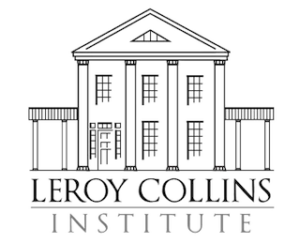
The Leroy Collins Institute today released a study on Florida’s charter schools that analyzes the trends in racial and economic diversity, accountability, innovation, and transparency, and provides recommendations for how Florida charter schools can improve.
The report, Florida Charter Schools: Not as Good, Or as Bad, as Advertised, delivers both good and not good news to critics and supporters of charter schools alike. Bottom line, in terms of segregation, location and student performance, charter schools are very similar to traditional schools.
“The Collins Institute’s careful study of charter schools provides non-partisan clarity to what has become a sometimes heated discourse,” said Lester Abberger, LeRoy Collins Institute board chair. “While it does not booster the claims of either side, it does something more important— provides useful information for Florida citizens, parents and students.”
The report draws primarily on Florida data and research, but also reviews nationally conducted research. Notable key findings from the report include:
- Florida’s charter schools are not less racially diverse but are less economically diverse than traditional schools.
- Charter schools do not adversely affect the racial and economic segregation of nearby traditional schools.
- Florida’s system of accountability and oversight regarding charter schools is strong but can be improved.
- Transparency is key to parental choice yet is poor in both charter and traditional schools.
- Innovation is key but is not adequately measured or shared.
Florida has a very active school choice environment, with options for parents that include traditional schools, charter schools, private schools, open enrollment policies and scholarships for students who meet specific criteria. To date, some 10 percent of Florida students are enrolled in charter schools, about double the percentage than the national average.
Based on the research found in the report, the LeRoy Collins Institute has laid out several recommendations focused around the areas of accountability, innovation, transparency, and racial and economic diversity, which include (but are not limited to):
- The state should revisit the purpose of charter schools and systematically analyze how the state policy has evolved and how the charter school sector has changed since the initial law.
- The state should reaffirm its original commitment to racial diversity in charter schools and add a commitment to diversity in students with a varying economic background.
- Efforts to skirt district school board accountability through such means as allowing charter schools to be authorized by the state should be avoided.
- The state should take a more proactive role in identifying innovative schools and sharing successful innovative practices with both charter and traditional school districts.
- Charters whose students substantially differ from the racial/ethnic and economically disadvantaged characteristics of the neighborhood should be required to work with the district to develop and implement a diversity plan.
“Our hope is that this study can lead to a careful assessment of the development of charter schools in Florida,” said Dr. Carol S. Weissert, LeRoy Collins Institute director. “We hope the state will take this opportunity to do just this through a revisiting of the charter school laws as they have developed over the past two decades.”
The report may be accessed on-line HERE.
About the LeRoy Collins Institute
Established in 1988, the LeRoy Collins Institute is a nonpartisan, statewide policy organization which studies and promotes creative solutions to key private and public issues facing the people of Florida and the nation. The Institute, located in Tallahassee at Florida State University, is affiliated and works in collaboration with the State University System of Florida. Named in honor of former Florida Governor LeRoy Collins, the Institute is governed by a distinguished board of directors, chaired by Lester Abberger. Other board members include executives, local elected officials, and other professionals from throughout the state.
